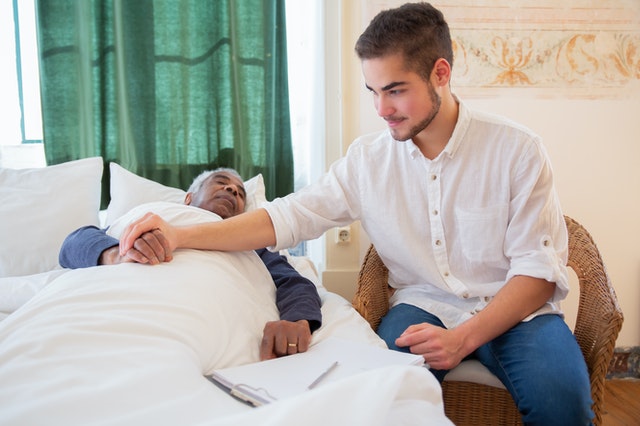ALS, also known as Lou Gehrig’s Disease, is a rare condition affecting 5.2 people per 100,000 population in the U.S. The disease is prevalent in older patients aged 55 and older. ALS affects the spinal cord and nerve cells in the brain, making patients lose muscle control. Patients suffer symptoms like difficulty in walking, muscle cramps, difficulty in swallowing, slurred speech, and breathing issues.
Currently, the disease has no cure, but patients can live a more comfortable and quality life with proper care. If you are a patient or have a relative suffering from the condition, in-home care is an excellent solution for you. In this article, you will learn how in-home care can benefit adults with ALS.
1. Exercise And Physical Therapy
Moderate exercises are essential to help patients with ALS maintain muscle strength and function. This will prevent muscle pain, cramps, and stiffness. An in-home caregiver or nurse assistant will help you or your sick relative walk and do other light exercises to improve muscle strength and performance.
In addition, physical therapy is critical to improving and maintaining mobility and balance. Be sure to work with a reliable in-home care provider like Husky Senior Care with highly-trained and experienced physical therapists to help you work on your mobility and strength, which will reduce the risk of falls.
2. Promote Good Nutrition
Proper nutrition will boost the immune system of patients with ALS. Additionally, it will help them have enough energy and stay strong to keep going regardless of the condition. Reliable in-home care providers have top nutritionists that will ensure you or your patient take healthy diets at all times. The dietitians will also ensure that you get food in a suitable form to make swallowing easier for you.
3. Provide Personal Care To The Patients
Please note that most patients severely affected by ALS cannot perform many tasks independently. They need assistance. In-home caregivers will help you with bathing, toileting, dressing, and grooming. In addition, the assistants will provide companionship, help you adopt healthy habits, and make you feel comfortable throughout the journey.
4. Offer Nurse Delegated Services
You will probably be taking medication to manage the disease during these trying times. In-home caregivers will ensure you take your medicines on time. Additionally, more experienced caregivers or nursing assistants may be called in to assist with respirations, secretions, dressing wounds, among other tasks.
5. Speech Therapy
If your speech and communication are affected by ALS, speech therapy and communication training is essential. In-home care will help you recover or maintain oral communication. On the other hand, communication training will help you learn non-verbal techniques of conveying your message if you cannot speak effectively anymore. Consider working with a reputable in-home care company as they have certified and experienced speech therapists and communication trainers.
Endnote
ALS is a serious disease that can make life difficult for affected older adults and their families. Although the condition has no cure, medications and in-home care can help manage its symptoms. Working with a trusted in-home care agency is advisable as it will ensure you or your sick relative lives a comfortable and quality life.


































